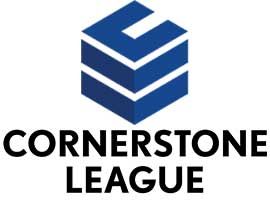
Are You Teachable
“I can do it myself.”
“I don’t need your help.”
“I can do it my way.”
I remember as a child being a little stubborn (I know you’re shocked ) and telling Mom aka FANNY that I could do it on my own.
“Just watch me. I’m a big boy now. I’m not a baby.”
Having the desire to assert independence and autonomy wasn’t the problem; lacking the proper information and experience to handle the situation was.
While learning so many things, I had to learn that I could have independence and grow into a big boy while still asking for help. I had to learn that I will never know everything and there will always be those with more knowledge and experience than me.
Just think what it would be like to try and ride a bike without training wheels. Or to hit a baseball without first using a T-stand. Becoming proficient at a skill or mastering an academic discipline requires rigorous effort to learn, the drive to apply it, and undying commitment to succeed. There is no shame in asking for or getting some help.
For leaders focused on building cohesive teams, teachability is the first attribute of an effective leader. This attribute comes first because it showcases the impact of the leader’s mindset.

It’s not just about having information but about discerning what is meaningful and worthy of retention and application.
Quality Input, Quality Output
When it comes to what leaders let into their minds, it matters. Leaders should be cautious about what enters their minds. The quality of input directly influences the quality of output. Being hungry for information is commendable, but it is equally crucial to be discerning and intuitively minded in processing information.
Here are three questions to ask yourself while in the process of learning:
-
What’s the source of the information I am about to trust?
-
Does “what I am hearing” make sense?
-
How can I apply what I am learning?
The internet is a vast place with good and bad information. Sometimes, it’s impossible to avoid bad info, conspiracy theories, or negative content. This is where a good leader must utilize their ability to critically think and discern the value of the information. Perhaps it offers no value and can simply be let go. A leader’s mindset allows them to hold onto information of value and simply release information that holds no value or is incorrect.
Recognizing their own fallibility is the first step in taking a humble attitude towards information allowed in. Leaders will get things wrong and might believe bad input. But by remaining critical and cautious about the quality of information, leaders will be much more likely to get the important things right.
Authenticity Over Arrogance
Being an authority on a topic is not a problem. Where it goes awry is when the leader is so full of himself, he has no room to learn anything else.
Arrogance is the downfall of many aspiring leaders. Even those currently in positions of power have lost the respect of their team due to their arrogance.
Leaders must avoid being so full of themselves that there is no room for learning from others.
Selena Gomez once shared the best advice Taylor Swift gave her:
“Selena, if you’re the smartest person in the room, I think you’re going to be in the wrong room.”
Gomez explains, “She {Taylor Swift} thinks I should constantly surround myself with people who are going to make me better, that are going to challenge and motivate me.”
A humbleness is required to recognize and understand that you cannot be the smartest person concerning finance, marketing, sales, and product development in your organization. Arrogance must be set aside to ensure there are people at the table who are experts in each field who can make the organization and even make the leader themselves better.
Pretending to be in the know when in fact they are not is shameful. Leaders should demonstrate to their teams how to be authentic and genuine.
You either know it or you own up to now knowing. And when you don’t know, then go back and learn more. (Great opportunity to plug our Cohesive Leadership Workshop Series. Click here to learn more.)
Transformative vs. Transactional Leadership
The leaders who “have got this” are not characteristic of following Transformative Principles like aspiring vision and teaching it, being good with people, creating trusted environments, or practicing self-awareness.
They are more focused on transaction over transformation. Their egos tell them that not knowing is a sign of weakness.
Imagine the child grabbing a bicycle and attempting to learn to ride on their own. No adult support and no helmet. Now imagine instead we are talking about an adult in charge of an organization where hundreds of thousands of dollars on the line who refuses to back down and ask for help.
It’s infuriating and yet leaders attempt to plow forward without help everyday.
These types of leaders are often weak and ineffective because they are just pretenders. They simply are not teachable.
Transformative leaders are social architects, fostering trusted environments through moral behavior, ethical practices, and a genuine desire to earn respect.
Finally, transformative leaders adopt and practice self-regard, which is the ability to evaluate their actions, guard personal emotions, and interpret others’ feelings. Through the concern for others and their well-being, being smart with people, creating trust, and practicing self-regard, leaders use these principles to bring about cohesive and high-performing work environments.
Mom aka FANNY taught me, “Asking for help is a sign of confidence, not weakness.”
Leaders who assert they know everything fall short in the test of teachability. They persist in moving forward with the belief that they have every situation under control. Unyielding leaders convince themselves that their way is the absolute best approach, and once their stance is established, they resist any form of alteration. The truth is, leaders who struggle to embrace learning opportunities are reluctant to admit then they might be wrong for the greater good. They overlook the distinction between mere knowledge and true wisdom and fail to recognize the value of diverse contributions from others.
For more information on my teachings, send me a message. And, if you’re interested in hearing more of Mom aka FANNY’s wisdom, click here to purchase a digital copy of my book, Fanny Rules: A Mother’s Leadership Lessons That Never Grow Old.
For more insight on this topic, please refer to these blog posts:
- Tackling HR Challenges Through Gamification
- Motivation to Drive Goal Success
- Does Your Corporate Culture Excel in Truth, Doing & Simplicity?
For leadership principles that can be applied today, click here to subscribe to Cohesion Corner™ with Dr. Troy!
Interested in reading more from Dr. Troy Hall? Check out my books available for purchase on Amazon: https://www.amazon.com/kindle-dbs/author?ref=dbs_G_A_C&asin=B08HPGVSYB
Interested in reading more from Dr. Troy Hall? Check out my books available for purchase on Amazon: https://www.amazon.com/kindle-dbs/author?ref=dbs_G_A_C&asin=B08HPGVSYB







